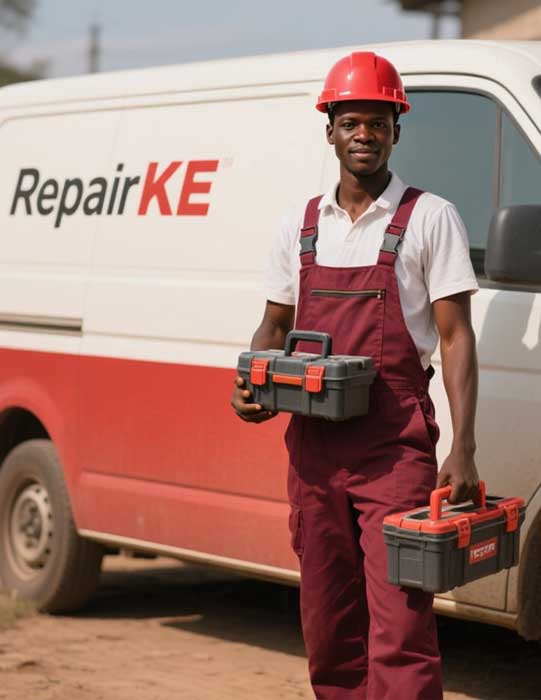Stove Technician: Ensuring Your Kitchen Runs Smoothly
A stove is the heart of any kitchen, whether in a bustling restaurant or a cozy home. When it malfunctions, it can disrupt meal preparation, affect daily routines, and even pose safety risks. This is where a stove technician steps in—a skilled professional dedicated to diagnosing, repairing, and maintaining stoves to keep them functioning optimally. At Repair.co.ke, we understand the importance of a reliable stove, and our expert technicians are here to ensure your appliance performs at its best. In this article, we explore the role of a stove technician, their tasks, essential skills, qualifications, and why their expertise is vital for every kitchen.
Who Is a Stove Technician?
A stove technician is a trained professional specializing in the installation, maintenance, repair, and troubleshooting of various types of stoves, including gas stoves, electric stoves, and dual-fuel ranges. They possess in-depth knowledge of stove components, such as burners, igniters, thermostats, and control panels, and are adept at handling both modern and older models. Their primary goal is to restore functionality, ensure safety, and extend the lifespan of your appliance.
Stove technicians work with a variety of clients, from homeowners to commercial kitchen operators, addressing issues ranging from minor malfunctions to complex repairs. Their expertise ensures that stoves operate efficiently, safely, and in compliance with manufacturer specifications and safety regulations.
Key Tasks of a Stove Technician
Stove technicians perform a wide range of tasks to keep your stove in top condition. Below are some of their core responsibilities:
1. Diagnosis of Stove Issues
- Troubleshooting: Technicians use diagnostic tools and their expertise to identify the root cause of stove problems, such as uneven heating, burner failure, or faulty temperature control.
- Inspection: They conduct thorough inspections of electrical wiring, gas connections, and mechanical components to pinpoint issues like gas leaks, faulty igniters, or damaged heating elements.
- Testing: Technicians test the stove’s performance after identifying issues to confirm the problem and determine the best course of action.
2. Repair and Replacement
- Component Repairs: They repair or replace malfunctioning parts, such as burners, thermostats, control knobs, or oven sensors, to restore full functionality.
- Gas Stove Repairs: For gas stoves, technicians address issues like clogged burners, faulty gas valves, or ignition problems while ensuring safe handling of gas lines.
- Electric Stove Repairs: For electric stoves, they fix wiring issues, replace heating elements, or repair control boards to ensure consistent performance.
3. Installation and Setup
- New Stove Installation: Technicians install new stoves, ensuring proper connection to gas or electrical lines, leveling the appliance, and testing its functionality.
- Safety Checks: During installation, they verify that all connections meet safety standards to prevent hazards like gas leaks or electrical faults.
4. Preventive Maintenance
- Routine Servicing: Technicians clean burners, check gas lines, and inspect electrical components to prevent future breakdowns.
- Calibration: They calibrate thermostats and temperature controls to ensure accurate cooking temperatures.
- Advisory Services: Technicians provide tips on proper stove usage and maintenance to prolong the appliance’s lifespan.
5. Safety Compliance
- Gas Safety: For gas stoves, technicians ensure there are no leaks and that all connections comply with safety regulations.
- Electrical Safety: For electric stoves, they check for faulty wiring or grounding issues to prevent shocks or fires.
- Regulatory Compliance: Technicians ensure repairs and installations adhere to local safety codes and manufacturer guidelines.
6. Customer Support
- Consultation: They advise clients on whether to repair or replace a stove based on cost, condition, and performance.
- Education: Technicians educate customers on safe operation, cleaning techniques, and warning signs of potential issues.
- Follow-Up: After repairs, they may follow up to ensure the stove is working correctly and address any additional concerns.
Essential Skills of a Stove Technician
To excel in their role, stove technicians must possess a combination of technical expertise, problem-solving abilities, and interpersonal skills. Here are the key skills that make a stove technician effective:
- Technical Proficiency: A deep understanding of stove mechanics, electrical systems, and gas systems is crucial. Technicians must be familiar with various stove brands and models, from traditional gas ranges to modern induction cooktops.
- Diagnostic Skills: The ability to quickly and accurately diagnose issues using tools like multimeters, pressure gauges, or diagnostic software is essential.
- Attention to Detail: Precision is critical when handling gas lines, electrical wiring, or delicate components to ensure safety and functionality.
- Problem-Solving: Technicians must think critically to troubleshoot complex issues and devise effective repair solutions.
- Safety Awareness: Knowledge of safety protocols for handling gas and electrical systems is non-negotiable to prevent accidents.
- Manual Dexterity: Working with small components and tools requires steady hands and fine motor skills.
- Customer Service: Strong communication skills help technicians explain technical issues in simple terms, provide advice, and build trust with clients.
- Time Management: Technicians often handle multiple service calls in a day, requiring efficient scheduling and task prioritization.
Qualifications and Training
Becoming a stove technician requires a mix of formal education, hands-on training, and certifications. Below are the typical qualifications:
- Educational Background: A high school diploma or equivalent is often the minimum requirement. Many technicians pursue vocational training in appliance repair, electrical systems, or HVAC technology.
- Technical Training: Apprenticeships or on-the-job training under experienced technicians provide practical skills in stove repair and maintenance.
- Certifications:
- Gas Safety Certification: For gas stove technicians, certifications in gas appliance repair and safety (e.g., from recognized bodies like NITA in Kenya) are essential.
- Electrical Certifications: Knowledge of electrical systems and certifications in handling electrical appliances are valuable for electric stove repairs.
- Manufacturer-Specific Training: Some technicians receive training from stove manufacturers to work on specific brands or models.
- Experience: Entry-level technicians may start with basic repairs, while experienced professionals handle complex diagnostics and installations.
- Licensing: In some regions, technicians must be licensed to work with gas appliances, ensuring compliance with safety regulations.
Why Choose a Professional Stove Technician?
Attempting to repair a stove yourself can be dangerous, especially when dealing with gas lines or electrical components. Professional stove technicians from Repair.co.ke offer several advantages:
- Safety First: Trained technicians prioritize safety, reducing the risk of gas leaks, electrical hazards, or improper repairs.
- Expertise and Efficiency: Their knowledge and experience allow them to diagnose and fix issues quickly, saving you time and money.
- Quality Repairs: Professionals use genuine parts and follow manufacturer guidelines, ensuring long-lasting repairs.
- Warranty Protection: Many repairs come with a warranty, giving you peace of mind.
- Comprehensive Service: From installation to maintenance, technicians provide end-to-end solutions for all your stove needs.
Common Stove Issues Handled by Technicians
Stove technicians address a variety of problems, including:
- Burners Not Igniting: Caused by clogged burners, faulty igniters, or gas supply issues.
- Uneven Heating: Often due to malfunctioning heating elements or thermostat issues.
- Oven Not Heating: Could result from a broken heating element, faulty thermostat, or control board failure.
- Gas Leaks: A serious issue requiring immediate attention to prevent health and safety risks.
- Electrical Faults: Includes tripped circuits, faulty wiring, or malfunctioning control panels.
- Strange Noises or Smells: May indicate loose components, gas leaks, or electrical issues.
Why Repair.co.ke?
At Repair.co.ke, our stove technicians are highly trained, certified, and equipped to handle all types of stove repairs and installations. We pride ourselves on:
- Prompt Service: We respond quickly to service calls, minimizing downtime in your kitchen.
- Affordable Pricing: Transparent pricing with no hidden fees.
- Customer Satisfaction: Our technicians are courteous, professional, and committed to exceeding your expectations.
- Nationwide Coverage: We serve clients across Kenya, ensuring access to reliable stove repair services.
A stove technician is an indispensable professional for maintaining the functionality and safety of your kitchen’s most vital appliance. From diagnosing complex issues to performing routine maintenance, their expertise ensures your stove operates efficiently and safely. At Repair.co.ke, our skilled technicians are ready to tackle any stove-related challenge, providing top-notch service to homes and businesses alike. If your stove is acting up, don’t wait—contact Repair.co.ke today for expert repairs and peace of mind.
For professional stove repair services, visit Repair.co.ke or call our hotline to schedule an appointment.






